If you thought the past few years were a lot, get ready for the doozy that will be 2024. While the headline is that more than half the world is voting in elections, that really doesn’t tell the whole story. The Economist Intelligence Unit (an Economist affiliate) notes that eight of the ten most populous nations in the world will vote this year, but four of these elections are in hybrid regimes that combine elements of democracy and authoritarianism and are unlikely to offer up any change.

Some of these elections are free and fair, but others are more obligatory check-the-box exercises to signal the people have chosen a leader, when the reality was that the result was never in doubt.
Rather than list them in chronological order, I decided to put some of the key elections in tiers based on a combination of how important they are and how much of a toss-up each race is. Admittedly, this is very vague and subjective, but it’s more fun than just listing everything.
So, with apologies to the myriad elections not listed below including municipal elections in Brazil, state elections in Germany and national elections in Bangladesh, Pakistan and South Africa, let’s get started.
1. An election that could change everything, but the result is preordained and nothing will change.
- Russia (March 15-17)
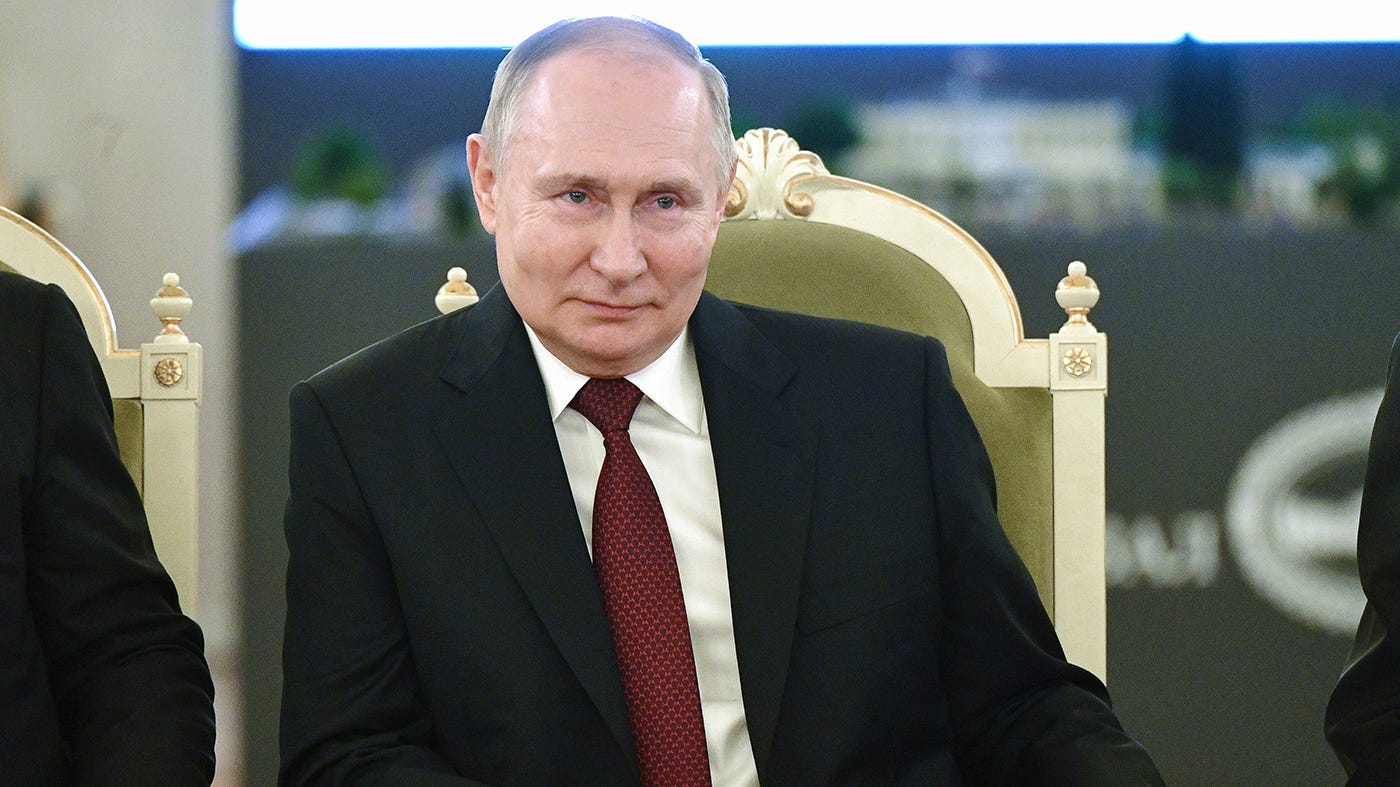
Nowhere is the specter of ‘authoritarianism mixed with a dash of democracy’ more present than Russia.
In December, Russian President Vladimir Putin announced his bid for a fifth term. As part of the theatre of the announcement, a military vet stood up at a Kremlin-held ceremony and appealed to Putin saying that more work needed to be done to integrate the Donbas (the eastern region of Ukraine) into Russia.
Putin responded by saying “I won’t hide it, at different times I have various thoughts about this. But you’re right. Right now is a time when decisions need to be made, and I will run for election to the position of president of the Russian Federation”
The former soldier making the appeal told the Russian state news agency that “on the front lines, everyone was concerned, wondering whether Putin would run”. Yes, because we all know that if the Russian troops did not want Putin to run again, he would magnanimously step down.1
Putin’s re-election will cement his reign until the next general election in 2030, a full 30-years since he was first elected president in 2000.2
It goes without saying that this is nothing but a sham. As a Kremlin spokesperson told The New York Times in August, “our presidential election is not really democracy, it is costly bureaucracy…Mr. Putin will be re-elected next year with more than 90 percent of the vote.”
A recent poll by the independent Russian research organization Levada Center found that Putin’s approval rating is still north of 80% across Russia.
In what I’m sure is an unrelated development, chief Putin-critic and political rival Alexei Navalny recently went missing for a few weeks. Navalny has been in prison since returning to Russia in January 2021.3 He was discovered in good spirits at a Siberian penal colony last month.
2. Elections where the result is pretty much assured.
- India (April/May - date TBD)
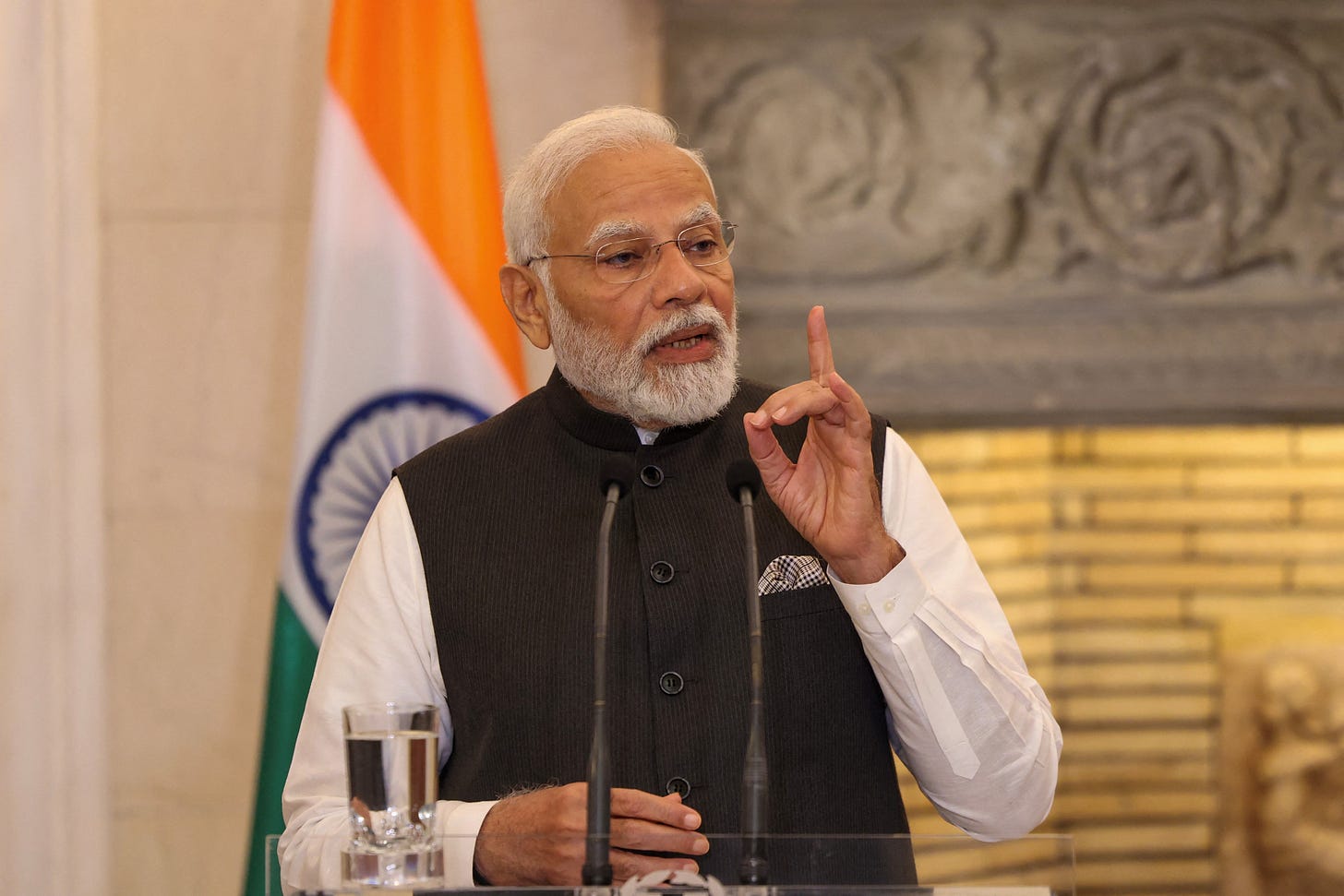
The leader of India since 2014, Prime Minister Narendra Modi has an approval rating around 80%, higher than any of his potential rivals. Modi has embraced Hindu nationalism, which has increased discrimination against the Indian Muslim community. Despite this (or because of it?), Modi’s popularity in the Hindi heartland is more than enough to carry him to victory.
A group of more than 25 opposition parties have joined together to form a coalition to try and break Modi’s hold on power. The coalition, the Indian National Developmental Inclusive Alliance (or INDIA). The party has consolidated support against Modi and it’s popularity went up throughout 2023. However, the party does not currently have a leader, which obviously presents a challenge moving into the election, and is quite fragmented across the nation.
The reality is that Modi is very likely to hold power. In elections held in November, the opposition had hoped to cut into Modi’s Bharatiya Janata Party’s (BJP) control over state governments. However, Modi led a strong campaign and the BJP won in three of the four key states and now control 16 of the 29 states, representing close to 60% of the Indian population. While Indian state elections have not necessarily correlated with national elections in recent years, the victory does strengthen the BJP’s hold.
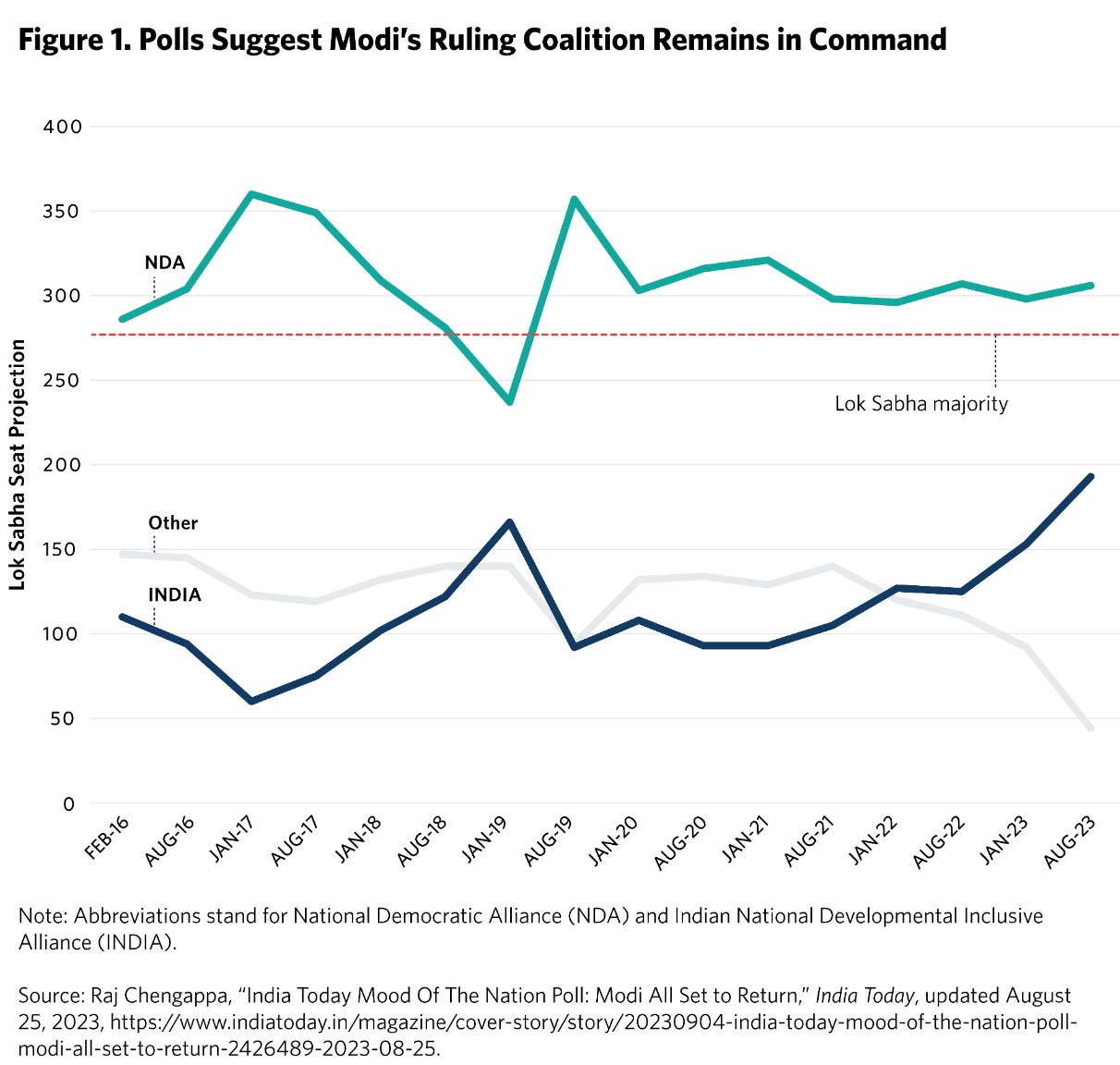
The BJP currently holds 336 seats in parliament, giving it an absolute majority. INDIA only holds 143.
- Mexico (June 2)
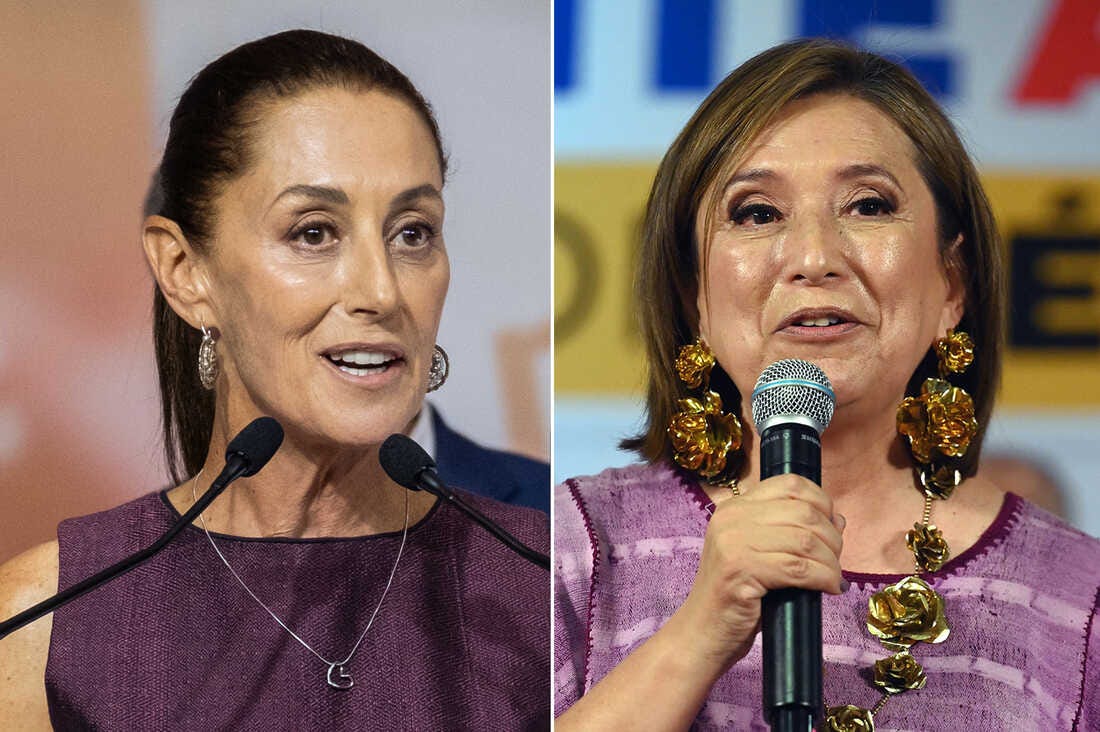
The US’s southern neighbors are also voting in elections later this year. And, as the two main candidates are women, Mexico will likely elect its first female president.
Claudia Sheinbaum, the former mayor of Mexico City, is the hand-picked nominee of current president Andrés Manuel López Obrador (who is term-limited). Sheinbaum represents the leftist Morena party.
Her chief rival is Xóchitl Gálvez who leads a coalition of opposition parties (known as the Broad Front) including center-right and leftist groups. Galvez herself is more conservative leaning and previously served as the top official for indigenous affairs under President Vicente Fox.
Sheinbaum, an environmental scientist who has previously contributed to the Intergovernmental Panel on Climate Change reports, has maintained a pretty sizable lead in the polls
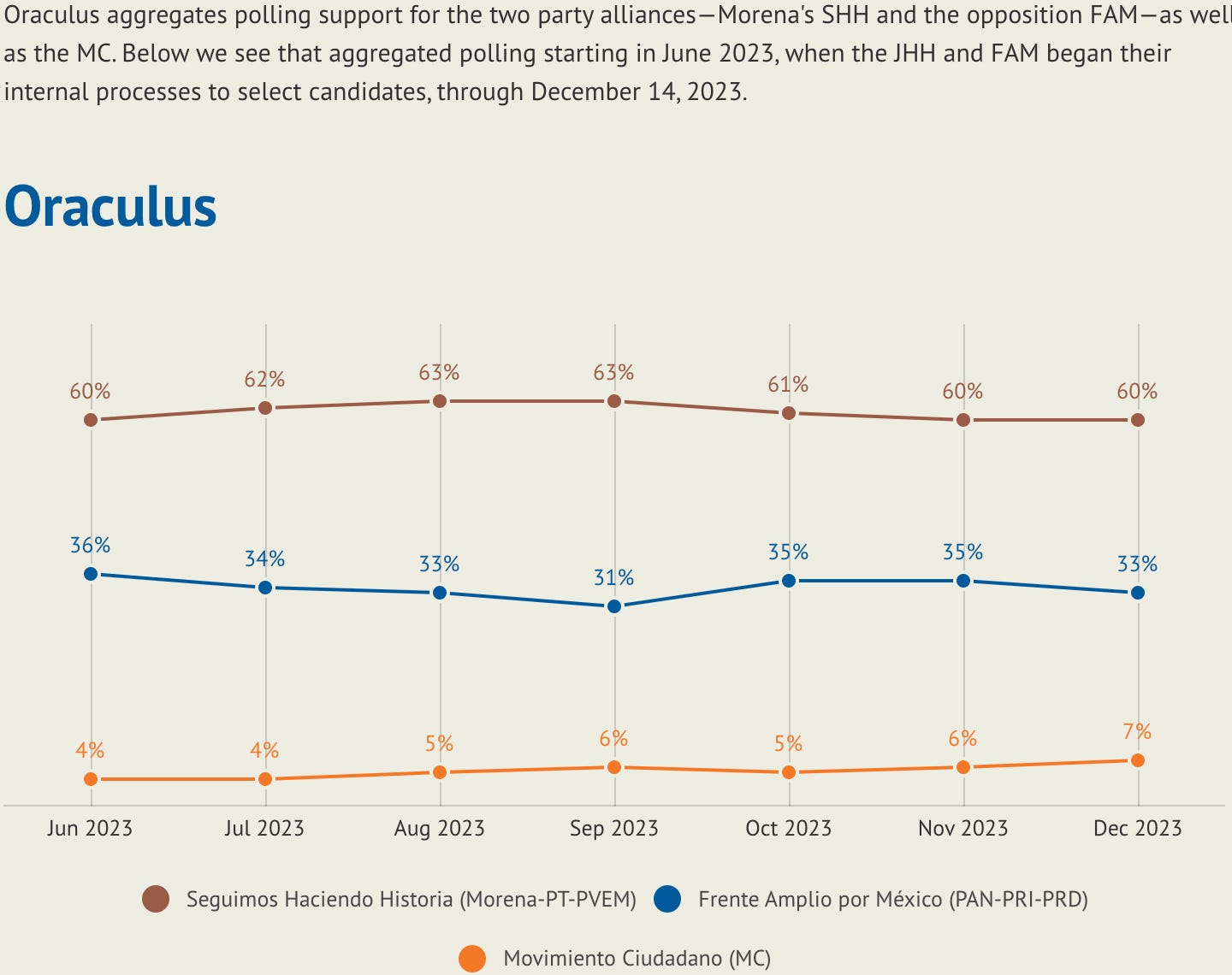
3. Elections that are more toss-ups (sorted chronologically).
- Taiwan (January 13)

While less than 24mn people call Taiwan home, a little more than the population of Florida, this election will be watched closely by both the US and China.
There are three major candidates competing. The main contender is Lai Ching-te, the current vice president and member of the Democratic Progressive Party. The other two candidates, Hou Yu-ih of the Kuomintang (KMT) and Ko Wen-je of the relatively new Taiwan People’s Party (TPP), tried to work together this past Fall but were unable to coalesce around who would lead the opposition ticket.
China has previously branded Lai a “separatist” and would prefer the KMT candidate Hou, who has promised to reduce tensions with China and form a more open dialogue.
While this race will draw a lot of attention because of the geopolitical implications (which you can count on Nuance Matters to discuss next week), economic concerns will preoccupy most actual voters, especially young people who are more open to Ko and the TPP.

- Indonesia (February 14)
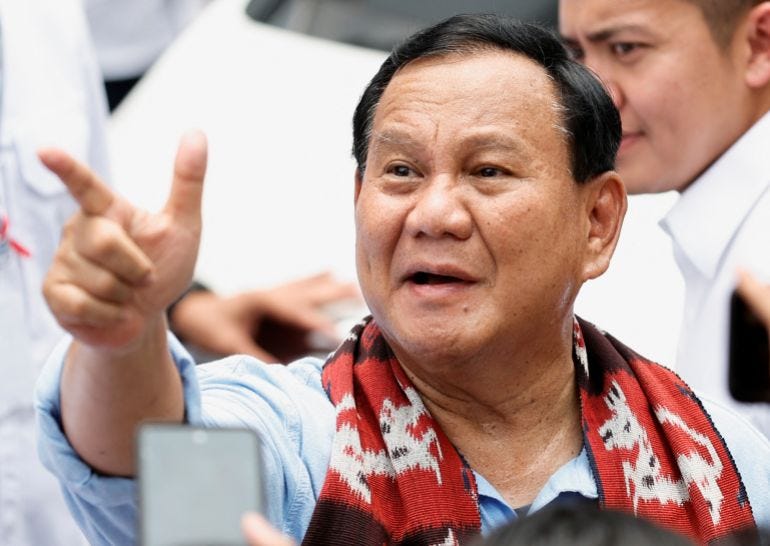
The world’s third-largest democracy, Indonesia votes for a new president this Valentine’s Day. The main contenders are Prabowo Subianto, the current defense minister, and Ganjar Pranowo, a popular former governor. Prabowo previously ran in 2014 and 2019, losing both times to current president Joko Widodo (colloquially known as Jokowi). Jokowi is very popular, but has not formally endorsed either candidate. Ganjar is backed by Jokowi’s PDI-P party, suggesting that Ganjar could garner much of this support.
However, the situation is not that straightforward. Prabowo’s vice presidential candidate is Jokowi’s son, Gibran Rakabuming. At 36 years-old, Gibran originally did not meet Indonesia’s president / vice president age minimum of 40 years-old. However, a constitutional court ruled that an exception would be made for previously elected regional leaders. As Gibran was the only possible candidate under the age of 40, and is the mayor of the city of Surakarta, the implications were that the court was favoring Jokowi’s son. This claim has drawn further merit from the fact that Jokowi’s brother-in-law (Gibran’s uncle) was the chief justice on the court that made the ruling. Following this ruling, the chief justice was forced to step down for a ‘serious ethical violation’.
The court also rejected a challenge that would have blocked presidential candidates who are over 70 or implicated in human rights abuses. Prabowo is 72 years-old and is viewed by human rights activists as responsible for various abductions and tortures when he was a general in the Indonesian special forces under the dictatorship of General Suharto.
Recent polls have Prabowo in the lead. If no candidate wins a majority on Valentine’s Day, a run-off will be held in June.
- EU parliamentary elections (June 6-9)
In June, the EU votes in European parliamentary elections. The recent success of some far-right parties in elections across Europe (most notably in Germany, Italy and the Netherlands) indicates that the EU parliament might also turn towards these groups.
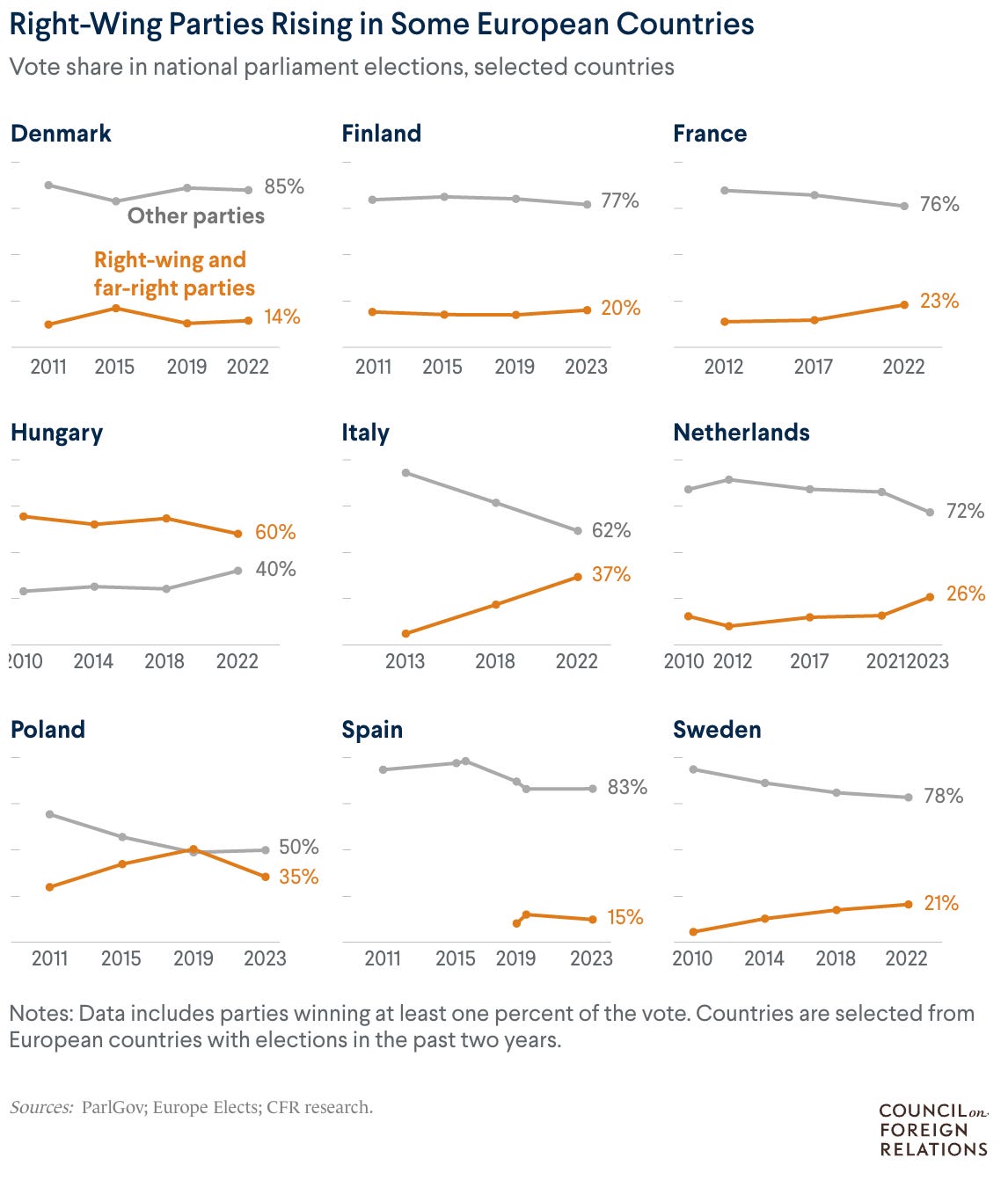
This success hasn’t been universal though, as Donald Tusk in Poland and Pedro Sanchez in Spain can attest. Economic performance, immigration and the situation in Ukraine will all be key issues that shape what happens in June.
Current polling though suggests all of the left-leaning parties will lose seats, with the populist Identity and Democracy Group standing to gain the most from this shift. If the centrists are able to hold the line, it will probably mean Ursula von der Leyen continues as the EU Commission’s president (if she decides to serve another term).

You may notice that totals above do not add up to the same number. This year, the total number of EU Parliament seats will decrease from 751 to 720. The legacy of Brexit.

4. Elections that are still up-in-the-air.
- United Kingdom general election
A general election must be held in the United Kingdom before the end of January 2025, which means there is a pretty good shot that elections will be held in 2024 (because no one wants to campaign hard over the holidays and in the New Year period when the populace is worried about other things). Prime Minister Rishi Sunak has already declared 2024 an election year, though he has not announced the actual date.
But the ruling Conservative party, in power since David Cameron won in 2010, is facing a massive deficit in the polls. Sure, the gap has closed slightly since Rishi Sunak became prime minister in October 2022, but not by much.

This means that when Sunak calls for a vote, he will basically be signaling the end of his prime ministership. As a result, elections will probably not be held early in the year, to give the economy more time to recover from its recent bout with inflation.
On the other hand, Sunak might want to align the general with local elections being held in May. Additionally, holding an election in the fall risks the opposition Labour Party conflating the Tories with their counterparts across the pond who are also holding national elections at the time.
- Ukraine - March 2024??
Ukraine is due to hold a presidential election in March. There are clearly logistical issues though with holding an election during the middle of a full mobilization to defend against a foreign invader. Millions of Ukrainians have been displaced and securing polling sites would be virtually impossible. On top of this, when Russia invaded in February 2022, Ukraine instituted martial law, which suspended elections.
A poll of Ukrainians in October found that 80% think elections should be held after the war concludes. When that would be though, no one can know. Zelensky said in November that it was “not the right time” for elections.
- Israel - 2nd half of 2024??
The next Israeli legislative election has to be held by October 2026. However there is speculation that, in the aftermath of Hamas’s attack and Israel’s response, Prime Minister Benjamin Netanyahu could move this up to 2024.
Netanyahu wasn’t a particularly popular politician prior to October 7th, but what support he did have has absolutely collapsed. Currently only 15% of Israelis want him to continue as prime minister. That being said, there is no definitive opposition candidate. Benny Gantz, who previously served in the coalition government opposed to Netanyahu and currently working in Israel’s war cabinet, would right now be the most likely option.
5. The election the world will be watching.
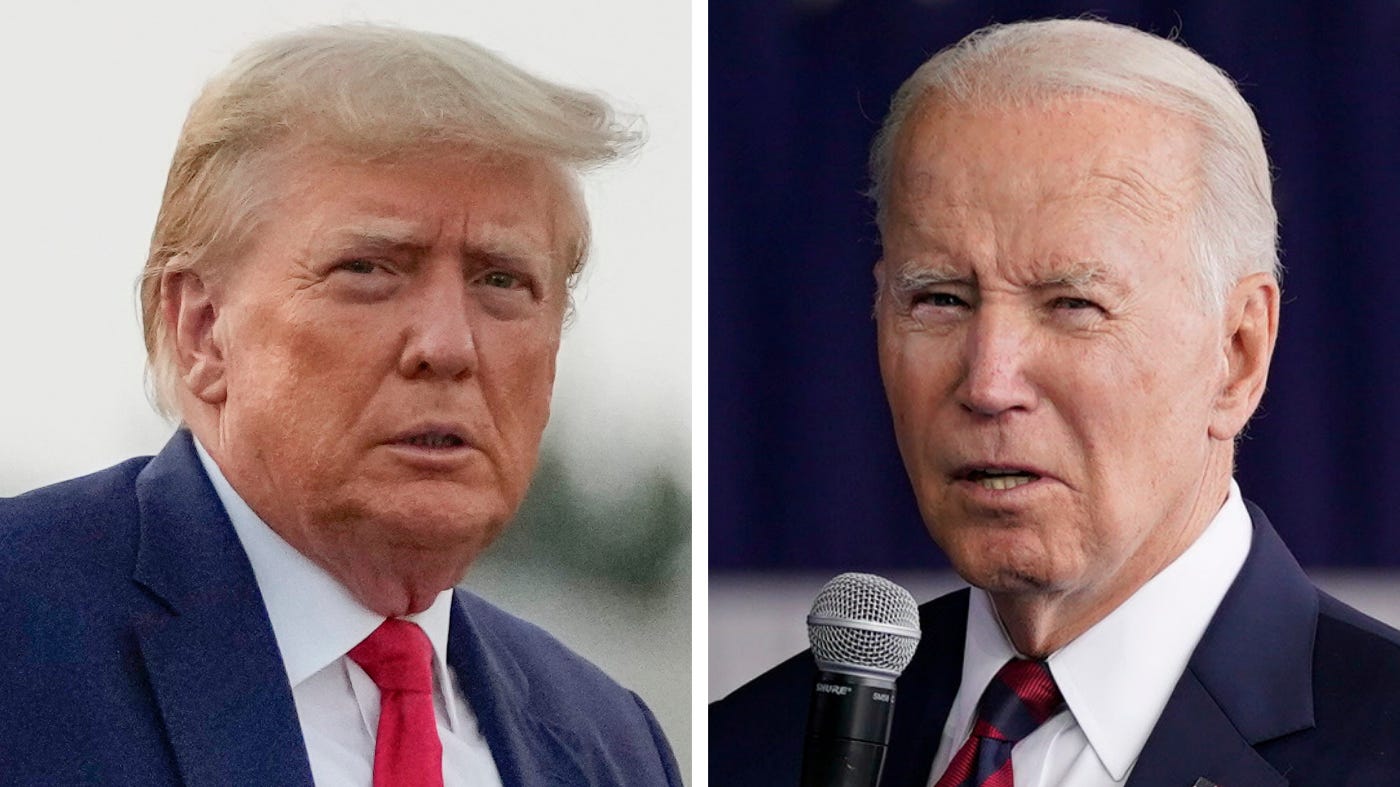
Keep reading with a 7-day free trial
Subscribe to Nuance Matters to keep reading this post and get 7 days of free access to the full post archives.



